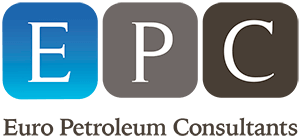Industry 4.0 is expanding in all spheres, and the oil, gas and petrochemical industries are no exceptions. Which areas are the most relevant for these industries and what results have been achieved? This is best illustrated in presentations given at the annual International Downstream Week that was held by Euro Petroleum Consultants (EPC) in Sardinia in May 2019.
Results of a survey conducted by EPC show that more than 70% of industry experts believe that the main area of Industry 4.0 technology application is within process control and simulation and digital enterprise twins. Martin Turk, Consulting Business Partner – Oil, Gas & Petrochemical Segment of Schneider Electric, explained how to use a digital twin to optimize refinery and petrochemical plant operations. Among examples was the experience of implementing a digital twin in an international oil company, which focused on Plan & Schedule and Monitor & Control. Using a digital twin, the company maximized value by capturing opportunities at every step of the value chain from crude selection through yield optimization and utilization improvements. As a result, incremental margin benefits were achieved due to better commercial optimization from 2016 to 2021 in the amount of $0.70/bbl, annualized this is equivalent to $500 million/year based on the company’s refining capacity.

Martin Turk presenting on the use of digital twins to optimize refinery and petrochemical plant operations
Abdulrahman Al-Gilani, Planning Engineer at Saudi Aramco shared a practical example of the company’s planning management. Using LP model, the company generates Short Range Operating Plan (SROP). SROP is formed monthly, includes information on the company's own refineries (throughputs, capacities and operating modes), joint refineries (product slates) and inventories. As software, the company uses Aspentech PIMS, SROP results form a detailed operation and distribution plan, the main figures of which are automatically uploaded to SAP.

Abdulrahman Al-Gilani presenting on Saudi Aramco’s Short Range Operating Plan using LP model
Filippo Zerbini, Advanced Solutions Sales Leader with Honeywell shared another example of the use of modern technologies to optimize operations in refineries and petrochemical plants. The company offers its customers Connected Performance Service (CPS), including Process Reliability Advisor (PRA) and Process Optimization Advisor (POA). These solutions are based on cloud platform architecture, connecting customer site and Honeywell Sentience. Use of POA at an Aromatics Complex with frequent changes in the quality of naphtha revealed an additional income of $ 9.5 million per year due to an increase in the yield of benzene by 1% and the yield of paraxylene by 4%.

Filippo Zerbini presenting on Honeywell’s Connected Performance Service
In addition to Honeywell, advanced reliability solutions were introduced by Andrey Kostyukov, President of DYNAMICS. The real-time diagnostic COMPACS system, developed by the company and using artificial intelligence (AI), makes it possible to significantly improve reliability indicators and achieve global best KPIs. As an example, an Aromatics Unit was presented, at which reactive maintenance was reduced to 1% and 3.5 years of non-stop operations were achieved.

Andrey Kostyukov presenting on AI driven reliability
Another popular area in Industry 4.0 is to expand the use of unmanned vehicles. Representatives of MOL Group – Zoltán Pandi, Group Investor Relations Expert, and Ádám Köteles, Downstream Conventional IT Development Leader – spoke about the company's experience in using drones for unplanned downtime reduction, storage tank, furnace and bund inspection, pipeline inspection, flare and chimney inspection, land work and land maintenance control. According to estimates, the use of drones will increase the company's EBITDA by ~1%.

Zoltán Pandi and Ádám Köteles presenting on drone-based industrial inspections
Another area where Industry 4.0 solutions can significantly help is energy management. Gabriel Bellido, IT and IIoT Data Systems Analyst of KBC (a Yokogawa company), spoke about the company’s energy and water optimization project in Singapore. The project was sponsored by Singapore Economic Development Board and included eight connected chemical plants. Among results achieved were 12% saving in energy costs, 15% CO2 reduction and 15% water use improvements. 15% industrial CO2 reduction is equal to taking all of the country’s cars off the road!

Gabriel Bellido presenting on digitalization for optimizing energy management
Igor Šepić, Director of Energy at INA-Industrija Nafte, shared a practical example of the implementation of an energy efficiency program at their refinery. One of the program areas is to reduce steam leaks using ultrasound and temperature measurements of steam traps for predictive maintenance. In general, the implementation of the program allowed the company to reduce energy costs by 3.4 million euros during 2015-2017.

Igor Šepić presenting on INA’s Energy Efficiency Program
Also, Antonio Massidda, PMO - Strategic Development Projects and Investments, and Gianfranco Porru, Technology Development Manager, on behalf of SARTEC told the conference about the integrated digital transformation of Sarras Refinery, the co-host of the IDW conference. Developments in the field of advanced control support systems, optimization of unit run during crude switching, prediction of crude blend compatibility leveraging machine learning model, business process optimization to guarantee “Reconciled Refinery Material Balance”, large machines predictive maintenance and automation of the CCR unit leak test were presented as examples.

Antonio Massidda and Gianfranco Porru presenting on Saras Group’s digital transformation
EPC will continue to pay close attention to Industry 4.0 in the oil, gas and petrochemical industries around the world. To find out more don't miss the opportunity to attend International Downstream Week 2020 in May. To keep up-to-date about the event, please visit europetro.com.
 Euro Petroleum Consultants is a technical oil and gas consultancy with offices in Dubai, London, Moscow, Sofia and Kuala Lumpur. Euro Petroleum Consultants also organises leading conferences worldwide.
Euro Petroleum Consultants is a technical oil and gas consultancy with offices in Dubai, London, Moscow, Sofia and Kuala Lumpur. Euro Petroleum Consultants also organises leading conferences worldwide.
